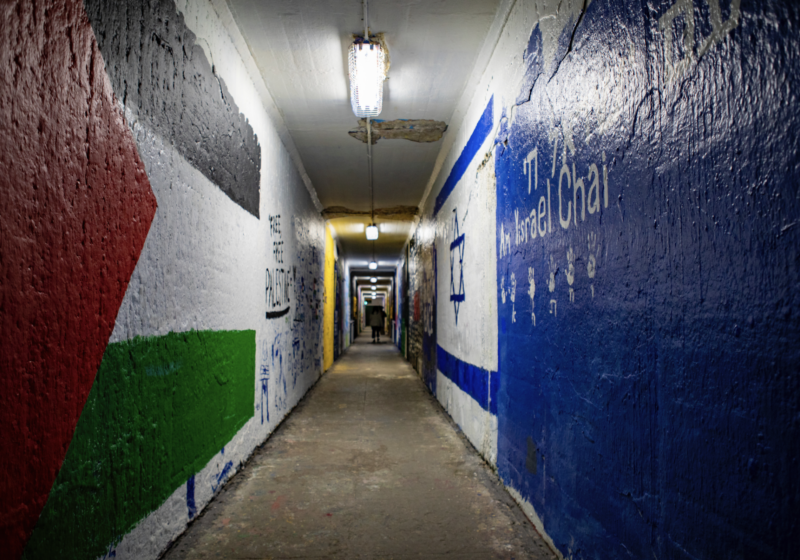The SA Senate passed a resolution calling for the University’s Ethical Investment Advisory Committee (EIAC) to advocate for UR to end all investments in “war, violence, and occupation” and for the administration to publish a statement “explicitly recognizing the need” for an immediate, permanent ceasefire in Gaza.
“This bill does not only affect the violence in Gaza right now,” EIAC Student Representative Wilson Peng said of the resolution. “It also affects genocides across the world, such as the ones occurring in the Democratic Republic of the Congo, Myanmar, Sudan. So it doesn’t target anyone specifically.”
The measure, sponsored by senior SA Senator Jacob Edwards, passed with 14 yeses and one abstention — abstentions count as “no” votes under SA rules. It was endorsed by 32 student organizations, three unofficial student organizations and coalitions, one unofficial faculty organization, SA President Daniel Pyskaty and Vice President Elijah Bader-Gregory, and Peng.
Senate meetings in the Gowen Room are always open to the public, but attendance typically is scant. April 1 was different, with more than 30 students attending the meeting to voice their support for the resolution.
Students shared personal stories of their relatives’ experiences in Palestine and their own experiences as Jewish and Palestinian students, all with the goal of convincing the Senate to pass the resolution. One student read a poem by Palestinian poet Hanan Mikha’il Ashrawi entitled “From the Diary of an Almost-Four-Year-Old” that tells the story of a young child whose eye was shot out by a soldier.
Student speakers made sure to emphasize their beliefs that as student representatives, SA has the power and responsibility to put pressure on the University to act in accordance with student goals.
After the students in the gallery expressed support for the resolution, Pyskaty expressed his own support.
“My pen’s ready to sign this once you all pass it,” Pyskaty said. “I really hope that tonight you do. And I think that this is a really powerful statement that we can say the student body as a whole agrees with this and that the University should actually be taking these voices seriously.”
SA Senate Speaker Caro Naranjo and Bader-Gregory agreed with Pyskaty.
“If you abstain, you say no to what this statement means at its core and what this resolution calls for,” Bader-Gregory said.
Then, in an unusual move, the Senate asked everyone outside of the student government to leave the room after the students in the gallery finished speaking. They entered what is called “executive session,” under which senators must clear non-SA members from the gallery, must stop all recordings and note-taking, and are forbidden from discussing deliberations that took place during the session.
“This is simply to ensure anonymity, and it will give student government officials the time to debate this in the space that they need to be able to feel comfortable debating this,” said SA Senator Jacob Edwards, the resolution’s sponsor.
Over the past ten years, executive sessions have exclusively been used to discuss appointments and personal matters, according to the SA Senate’s meeting minutes and several former SA members. In this case, however, an executive session was used to deliberate and vote on a resolution, meaning that, aside from a tally, there is no record of how senators voted or why senators chose their votes.
“The voting part has been and is meant to be public in order to ensure transparency for the constituents,” former SA President Sabeet Kazmi ‘23 told the Campus Times.
The SA Senate also did not enter the executive session properly. While their Policies and Procedures Manual requires a two-thirds vote of all senators, they motioned to enter the session, did not vote, and then asked people to leave the room.
Nonetheless, supporters congregated outside the Gowen Room doors during the deliberations and vote, before erupting into cheers after Edwards told them it passed.
Much of the future impact of the resolution lies in the hands of the EIAC and, even more so, in the hands of UR’s Investment Office and the Board of Trustees Investment Committee. The latter two oversee the investment of the endowment, while the former simply advises them on ethical matters.
Peng, the SA-appointed student representative on the committee, said he intends to make the resolution’s directive a priority.
“I will be here over the summer full time,” he said. “So during the meetings over the summer, I will continue to advocate for this enormous issue.”


